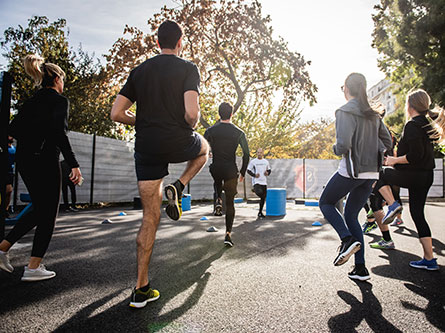Health and fitness are integral components of a well-balanced, fulfilling life. In today’s fast-paced world, prioritizing physical and mental wellness ensures not only a longer life but also a higher quality of living. The relationship between physical health, mental well-being, and overall fitness plays a vital role in personal happiness and productivity. By focusing on key aspects such as nutrition, regular exercise, and mental resilience, we can achieve optimal health and fitness levels.
The Foundations of Physical Health
Achieving excellent physical health begins with a consistent focus on nutrition and exercise. A well-structured approach to these areas ensures long-term benefits. A balanced diet fuels the body, providing the necessary nutrients for energy, cellular repair, and immune function. Nutrient-dense foods, such as lean proteins, whole grains, fruits, and vegetables, should form the cornerstone of any healthy diet. A proper intake of macronutrients keeps the body energized and functioning optimally throughout the day. Nutrients like protein, vitamins, and minerals support tissue regeneration and repair, essential for recovery after physical exertion.
The Role of Nutrition in Health
Nutrition plays a crucial role in maintaining our physical health. It provides energy for daily activities, supports metabolic processes, and enhances immune system functionality. A diet rich in fruits, vegetables, whole grains, and lean proteins ensures that our bodies receive the essential nutrients they need. Each nutrient has a specific role, from carbohydrates providing energy to proteins repairing tissues. In addition, micronutrients like vitamins and minerals play a significant role in maintaining health and preventing disease. A well-rounded diet can help reduce the risk of chronic conditions such as diabetes, heart disease, and obesity.
Exercise and Its Impact on Fitness
Regular physical activity is essential for maintaining and improving fitness levels. Incorporating a variety of exercises promotes cardiovascular health, muscle strength, and flexibility. Engaging in aerobic activities such as running or swimming enhances heart health, reducing the risk of cardiovascular diseases. Strength training exercises, including weightlifting or bodyweight workouts, build muscle mass and bone density, which is crucial as we age. Flexibility and balance can be improved through activities like yoga and pilates, reducing the risk of injuries. These exercises not only enhance physical appearance but also boost self-esteem and overall well-being.
Mental Well-Being: The Other Side of Fitness
While physical fitness is often the focal point of health discussions, mental fitness is equally important. A strong mind enables us to cope with stress, make better decisions, and maintain emotional stability. Mental health significantly influences our overall quality of life. Regular physical activity is essential for promoting mental health, as it stimulates the release of endorphins, natural mood lifters. Studies have shown that people who engage in regular physical activity are less likely to suffer from anxiety or depression. Exercise also improves cognitive function, leading to better memory and concentration.
The Connection Between Exercise and Mental Health
There is a strong correlation between regular physical activity and improved mental health. Exercise reduces symptoms of anxiety and depression by releasing endorphins in the brain. Furthermore, engaging in physical activity promotes better sleep quality, which is crucial for mental health. Adequate sleep enhances mood and cognitive function, contributing to overall well-being. Incorporating physical activity into daily routines not only strengthens the body but also cultivates a positive mindset. Individuals who exercise regularly often report greater emotional resilience and improved coping skills in the face of stress.
Mindfulness and Stress Management
Incorporating mindfulness practices, such as meditation or deep-breathing exercises, can help manage stress levels and improve overall mental health. Mindfulness encourages individuals to stay present, fostering a deeper awareness of their thoughts and emotions. This practice can lead to reduced stress and improved emotional regulation. By being mindful, individuals develop greater self-awareness and can understand their triggers better. This understanding helps in implementing effective coping mechanisms, ultimately leading to a more balanced life. Additionally, mindfulness practices can enhance focus and productivity, making them valuable tools for personal and professional growth.
Balancing Physical and Mental Fitness
Achieving total wellness requires a harmonious balance between physical and mental fitness. Setting realistic goals for both physical and mental health ensures sustainable progress. Whether it’s running a certain distance or mastering a mindfulness technique, establishing clear and attainable objectives provides motivation and direction. Creating a routine that incorporates both exercise and mental health practices is key to long-term success. Regularity fosters discipline and ensures that these activities become a natural part of daily life. By dedicating time to both aspects of wellness, individuals can create a balanced lifestyle that promotes overall health.
Monitoring Your Progress
Tracking your physical and mental health progress is essential for staying on course. For physical health, this could involve keeping a workout log or tracking improvements in strength, flexibility, or endurance. For mental health, journaling emotions or noting mindfulness improvements can offer insights into mental fitness advancements. Regularly assessing progress helps in identifying areas that need improvement and adjusting strategies accordingly. This proactive approach ensures that individuals remain committed to their health and fitness journey. By celebrating small victories and reflecting on challenges, one can stay motivated and inspired to continue striving for better health.
The Long-Term Benefits of Prioritizing Health and Fitness
Committing to health and fitness provides numerous long-term benefits that significantly improve both quality of life and longevity. Maintaining a consistent exercise regimen and healthy diet prevents the onset of many chronic diseases, such as diabetes, hypertension, and cardiovascular diseases. Over time, your body becomes more resilient, allowing you to live an active life even into older age. Moreover, prioritizing health and fitness fosters a positive mindset and emotional stability, contributing to overall happiness. Strong mental and physical health enhances one’s ability to enjoy life’s experiences and build meaningful relationships.
Improved Physical Health
With consistent effort toward physical fitness, individuals can experience improved health outcomes. Regular exercise enhances cardiovascular function, promotes weight management, and strengthens bones and muscles. Engaging in physical activity can also lead to better metabolic function, reducing the risk of obesity-related conditions. This proactive approach to health encourages a lifestyle that values activity and well-being. As physical health improves, individuals often feel more energized, motivated, and capable of taking on new challenges. A strong body fosters a confident mindset, empowering individuals to pursue their goals with vigor https://163m.cc/.
Enhanced Mental Clarity
With regular exercise and mindfulness practices, you can enjoy sharper cognitive function and improved memory as you age. Mental clarity is vital for maintaining independence and staying engaged in personal and professional activities. Physical activity stimulates blood flow to the brain, enhancing its function and promoting neurogenesis, the growth of new brain cells. This cognitive boost leads to better decision-making and problem-solving abilities. Additionally, mindfulness techniques enhance focus and attention, helping individuals navigate complex tasks more effectively. The combination of physical and mental fitness creates a robust foundation for lifelong learning and personal development.
Stronger Relationships
When we are in good health, both physically and mentally, our relationships tend to flourish. Being physically fit allows us to engage more in social and recreational activities, while good mental health enables us to communicate effectively and maintain emotional stability in relationships. Healthy interactions with others promote a sense of belonging and community, which are essential for emotional well-being. As we invest in our health, we naturally become better partners, friends, and family members. The support we receive and provide strengthens bonds, creating a positive feedback loop that enhances our collective well-being.
Conclusion: A Lifelong Commitment to Health and Fitness
The pursuit of optimal health and fitness is a lifelong journey. By focusing on both physical and mental wellness, we can achieve a balanced life that supports our personal and professional endeavors. Through a commitment to regular exercise, proper nutrition, and mental well-being, we create the foundation for long-term health, happiness, and success. The key is to remain consistent, set achievable goals, and monitor progress regularly. Taking control of our health today sets us on the path toward a better tomorrow, one where we enjoy not only a longer life but also a more vibrant and fulfilling one.





